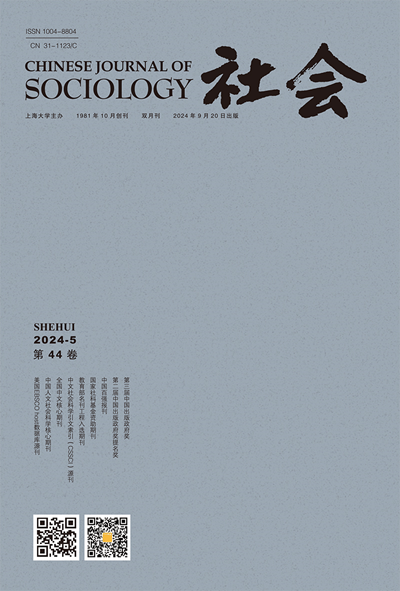The power of co-optation: The party, political capital, and the development of grassroots non-governmental organizations
IF 1.8
4区 社会学
Q2 SOCIOLOGY
引用次数: 0
Abstract
In recent years, a growing number of publications has focused on the state–non-governmental organization relationship in China. However, most of these studies regard the state as “the government” and neglect the role of the Communist Party of China, a key player, in shaping the state–non-governmental organization relationship, as well as the difference between the government and the Communist Party of China. As the ruling party, the Communist Party of China exercises a tremendous influence over people's daily life. Current studies indicate that the government tends to use a strategy of categorization to control non-governmental organizations. What remains unclear, however, is whether the Party has a different impact on non-governmental organizations compared to the government and how it influences the relationship between the government and these organizations. This paper examines the emerging role of the Party since the policy implementation of “Strengthening the Party Organization in NGOs” in 2015, which requires all non-governmental organizations to establish Communist Party of China branch units. Two grassroots environmental non-governmental organizations were selected for the comparative case study of this paper, to examine the different mechanisms whereby the Party impacts such organizations. The findings indicate that only the Party is able to co-opt the leaders of non-governmental organizations and give them political credentials and capital that help to expand these organizations’ social networks and create a hospitable regulative environment for growth. The findings suggest that a close tie with the state does not necessarily mean a loss of autonomy. This study is by no means a comprehensive discussion of the impact of the Party on non-governmental organizations, and further research is needed to study the actual impact of this relationship on public governance.竞聘的力量:政党、政治资本与基层非政府组织的发展
近年来,越来越多的出版物关注中国政府与非政府组织的关系。然而,这些研究大多将国家视为“政府”,忽视了中国共产党在塑造国家-非政府组织关系中的关键角色,以及政府与中国共产党的区别。作为执政党,中国共产党对人们的日常生活有着巨大的影响。目前的研究表明,政府倾向于采用分类策略来控制非政府组织。然而,目前尚不清楚的是,与政府相比,党对非政府组织的影响是否不同,以及党如何影响政府与这些组织之间的关系。本文考察了自2015年“加强非政府组织党组织建设”政策实施以来,中国共产党在非政府组织中的新角色,该政策要求所有非政府组织建立中国共产党的分支单位。本文选取了两个基层非政府环境组织作为比较案例研究对象,考察中共影响这些组织的不同机制。调查结果表明,只有党能够吸收非政府组织的领导人,并给予他们政治资格和资本,以帮助扩大这些组织的社会网络,并为增长创造一个友好的管理环境。研究结果表明,与政府的密切联系并不一定意味着失去自主权。本研究绝不是对党对非政府组织影响的全面探讨,这种关系对公共治理的实际影响还需要进一步研究。
本文章由计算机程序翻译,如有差异,请以英文原文为准。
求助全文
约1分钟内获得全文
求助全文
来源期刊

社会
Social Sciences-Social Sciences (all)
CiteScore
1.70
自引率
0.00%
发文量
6799
期刊介绍:
The Chinese Journal of Sociology is a peer reviewed, international journal with the following standards: 1. The purpose of the Journal is to publish (in the English language) articles, reviews and scholarly comment which have been judged worthy of publication by appropriate specialists and accepted by the University on studies relating to sociology. 2. The Journal will be international in the sense that it will seek, wherever possible, to publish material from authors with an international reputation and articles that are of interest to an international audience. 3. In pursuit of the above the journal shall: (i) draw on and include high quality work from the international community . The Journal shall include work representing the major areas of interest in sociology. (ii) avoid bias in favour of the interests of particular schools or directions of research or particular political or narrow disciplinary objectives to the exclusion of others; (iii) ensure that articles are written in a terminology and style which makes them intelligible, not merely within the context of a particular discipline or abstract mode, but across the domain of relevant disciplines.
 求助内容:
求助内容: 应助结果提醒方式:
应助结果提醒方式:


